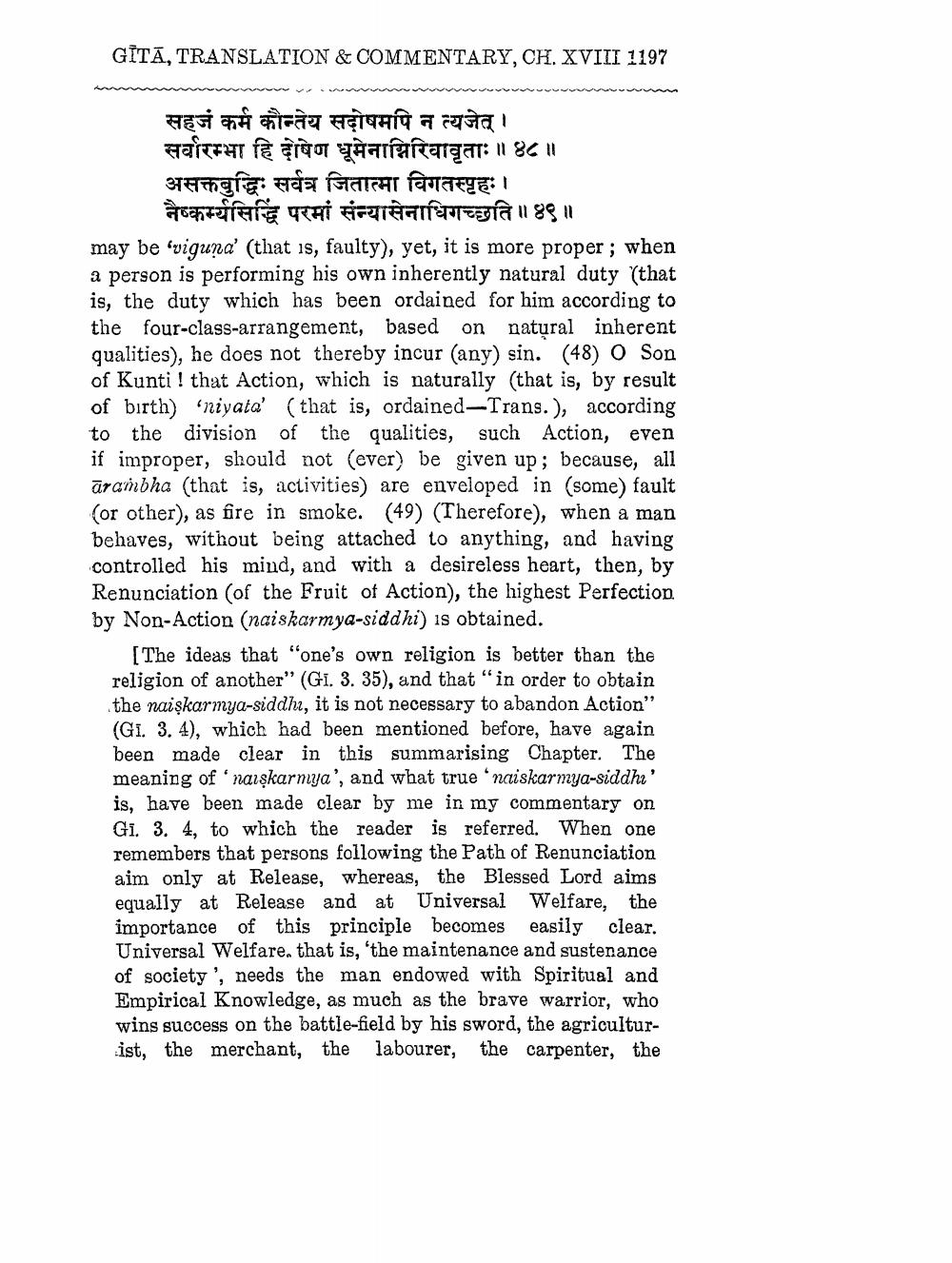________________
GĪTĀ, TRANSLATION & COMMENTARY, CH. XVIII 1197
सहजं कर्म कौन्तेय सदोषमपि न त्यजेत् । सर्वारम्भा हि दोषेण धूमेनाग्निरिवावृताः॥४८॥ असक्तबुद्धिः सर्वत्र जितात्मा विगतस्पृहः।
नैष्कर्म्यसिद्धि परमां संन्यासेनाधिगच्छति॥४९॥ may be fviguna' (that is, faulty), yet, it is more proper; when a person is performing his own inherently natural duty (that is, the duty which has been ordained for him according to the four-class-arrangement, based on natural inherent qualities), he does not thereby incur (any) sin. (48) O Son of Kunti ! that Action, which is naturally (that is, by result of birth) niyata' (that is, ordained-Trans.), according to the division of the qualities, such Action, even if improper, should not (ever be given up; because, all arambha (that is, activities) are enveloped in (some) fault (or other), as fire in smoke. (49) (Therefore), when a man behaves, without being attached to anything, and having controlled his mind, and with a desireless heart, then, by Renunciation (of the Fruit of Action), the highest Perfection by Non-Action (naiskarmya-siddhi) is obtained.
[The ideas that "one's own religion is better than the religion of another" (Gi. 3. 35), and that "in order to obtain the naişkarmya-siddhi, it is not necessary to abandon Action" (GI. 3. 4), which had been mentioned before, have again been made clear in this summarising Chapter. The meaning of 'naişkarmya', and what true naiskarmya-siddhi' is, have been made clear by me in my commentary on Gī. 3. 4, to which the reader is referred. When one remembers that persons following the Path of Renunciation aim only at Release, whereas, the Blessed Lord aims equally at Release and at Universal Welfare, the importance of this principle becomes easily clear. Universal Welfare, that is, 'the maintenance and sustenance of society', needs the man endowed with Spiritual and Empirical Knowledge, as much as the brave warrior, who wins success on the battle-field by his sword, the agriculturist, the merchant, the labourer, the carpenter, the




